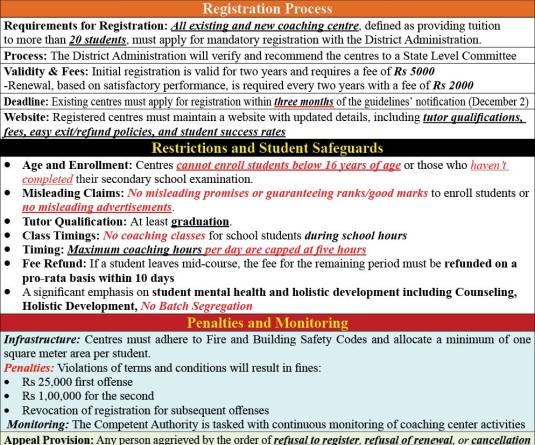
Dimapur, October 20 (MExN): The Chakhesang Public Organization today demanded from the Nagaland state government that “the law” be adhered to, to rectify loopholes in the Schedule Tribe system. An unhappy CPO said that the Chakhesang community has been stripped of all benefits meant for the Backward Tribe schedule.
The Chakhesang apex issued a statement today strongly denouncing “on the present advertisement for mass recruitment on the strength of an office memo No. AR-3/Gen-212/2010 dated Kohima, the 9th September, 2010.” The policy has far-reaching consequences and serious repercussions that may disturb the existing social harmony and oneness of Naga tribes “irrespective of colors,” the CPO said.
The CPO said that job-aspiring candidates residing in a particular district are debarred from applying jobs in another district. This amounts to dividing the people on the basis of ‘geographical demarcations’ within the state, the CPO said. “The present policy will compel all the weaker districts to demand for equal status, equal infra-structural establishments and equal political power to produce and avail equal numbers of job opportunities and development. The citizens of weaker districts have less opportunity for no fault of them.”
Further, a candidate seeking appointment in a category of vacancy is debarred from applying job to another category due to simultaneous exams on the same day for both the directorates and the district vacancies. This process is depriving job aspirants from healthy, fair and open competitions at all levels, the CPO told the government.
The CPO said the existing BT reservation policy norms were completely ignored and abolished for recruitments in the district level vacancies in 10 districts barring Dimapur. “Whereas a completely reverse policy is adopted in the case of Dimapur district with 64% reserved for BTs and 36% for open competitions conflicting the policy on job reservation,” the statement said in disapproval.
In the case of the directorate vacancies, the Chakhesang organization said, the government completely segregated the BTs from the “Advance group” reserving 67.4% absolutely for the “Advance tribes” and confined the BTs (who otherwise comprising 50% of state population) to a mere 32.6% and totally deprived from merit competitions in the open seats. “The memo deprived and suppressed the weaker sections that are educationally and economically backward and are not adequately represented in the government services. This totally negates the existing policy of the state to encourage the backward tribes to come at par with the more advance tribes,” the CPO said.
“Conducting separate interviews for Advance and BTs have not only deprived the BTs from availing job through open competition but created class system in our so call classless Naga society. The weak remains weaker and the gap between the have and have-nots grow wider in the present recruitment policy.”
The Chakhesang Public Organization also informed about having met on October 17 over affairs associated with Public Interest Litigation “preferred by CPO for necessary interpretation by the honorable court of law to meet the ends of justice in regards to the Personal & Administrative Reforms Department Notification No. RCBT-5/87(Pt-II) dated 23rd July 2008.”
“The CPO desires to have speedy disposal of the matter in the court and expedite all recruitment process in the state legally. However, the CPO fails to understand the attitude of the state Government, dragging the matter this far and delay the passage of law on one pretext or the other. The case was adjourned on several occasions by the prayer of the counsels for the state keeping the fate of thousands of job aspirants in jeopardy,” the statement said.
The Government of Nagaland recognizes two categories i.e., ‘backward’ and ‘advance’ and any further sub-classification of the people belonging to the same homogenous group is, according to CPO, “bad in law and the law is against re-grouping of the classified group.”
In 1977, by a government’s notification, 25% of jobs under the Government of Nagaland was reserved for seven tribes namely Konyak, Chakhesang, Sangtam, Phom, Khiamnungam, Chang and Yimchunger who are “educationally and economically very backward and who had insignificant representation in the services, for a period of 10 years.” Reservation was enhanced to 33% and in the same notification the Zeliang tribe was included in the list of BT (backward tribe).
The number of tribes further increased to 9 with the inclusion of Pochury tribe (Notification No. RCBT/5/87 dated 24/03/94). “The original ideals of backward tribe reservation is to develop, encourage and push forward those tribes to come at par with the more advance tribes who otherwise are lacking behind,” CPO said.
The CPO lamented that the Chakhesang tribe has been ‘unceremoniously placed in an undefined status along with Pochury and Zeliang tribes.’ The CPO explained: “The Chakhesang tribe is a scheduled tribe in the state of Nagaland. In 1970 the presidential notification has recognized the Naga Tribes as one homogenous group and classified as schedule tribe. Subsequently, the state of Nagaland had recognized the existing 16 tribes in the state of Nagaland including Kuki and Kacharis provided they are indigenous inhabitants of Nagaland. The state Government of Nagaland then classified the 14 Naga tribes to two broad categories such as advance and backward. Now, there are 5 advance tribes and 9 backward tribes in the state of Nagaland and it is well understood that 9 BTs belongs to one homogenous group of people and the law is categorically against classifications within the classified group or re-grouping of people belonging to same homogenous group. The present notification that divides the BTs to 2 categories is therefore bad in law.”




